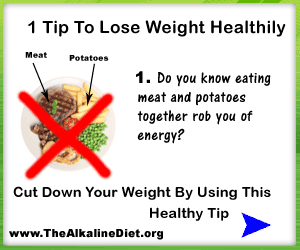Foods that help you sleep through the night
June 17, 2017
Foodviki
Tweet
Follow
Tweet


Many foods contain naturally occurring substances that bring on sleep; here are some of the best choices to help you settle down for a quality rest.It’s time to say goodbye to sleepless nights with these easy ingredients you probably already have in your pantry.
If you’ve tried everything to get a good night’s rest, but are still tossing and turning every night, don’t worry the solution to your lack of shut-eye may actually be found in the kitchen. Eating before bed ensures that your body uses food as fuel instead of your lean muscle stores, but not all midnight snacks are created equal.
Almonds
Almonds are rich in magnesium, a mineral needed for quality sleep (and also a known headache remedy). A study published in the Journal of Orthomolecular Medicine found that when the body’s magnesium levels are too low, it makes it harder to stay asleep.
Skim Milk
Emphasis on the skim. Milk that’s higher in fat will take your body longer to digest, and the last thing you want while trying to sleep is for your body to be working overtime. You actually want your body to focus on using the tryptophan found in milk. This amino acid is a precursor for serotonin and melatonin, hormones that can help induce sleep and regulate sleep cycles. Looks like your mom was right about drinking milk before bed!
Rice Cereal
Who doesn’t love breakfast for dinner? Eating a high-glycemic carb like rice (or rice cereal), four hours before bed can cut the amount of time it takes to fall asleep in half compared to eating another low-GI food, according to a study published in the American Journal of Clinical Nutrition. High-glycemic carbs help increase the ratio of sleep-enabling tryptophan in your blood by siphoning off other amino acids to your muscles. With more tryptophan in your brain, your body will get more clear signals that it’s time to power down and go to sleep.
One option for rice cereal is Kellogg's Rice Krispies, which clocks in at just 130 calories, 0 grams of fat, 29 grams of carbs, and 4 grams of sugar per 1 ¼-cup serving. Another option is General Mills Rice Chex, which are 100 calories, 0.5 grams of fat, 23 grams of carbs, and 2 grams of sugar per 1-cup serving.
Cherry Juice
A glass of cherry juice could make you fall asleep faster, according to researchers from the Universities of Pennsylvania and Rochester. Cherries, particularly tart cherries, naturally boost levels of melatonin. In the study, subjects who drank cherry juice experienced some improvement in their insomnia symptoms compared to those who drank a placebo beverage.
Banana
Remember the tryptophan found in skim milk and assisted by rice cereal? It’s in bananas, too. But the sleep-inducing amino acid isn’t the only way this fruit helps get you ready for bed. Bananas also contain potassium and magnesium, both of which benefit your sleep cycle by aiding muscle relaxation.
On top of helping knock you out, eating a banana before bed can also improve the quality of your sleep. A study in the Journal of Research and Medical Sciences found that older adults suffering from insomnia slept better when they had magnesium in their system. Instead of lying awake, they spent more time in bed actually sleeping and found it easier to wake up. Better sleep is just one of the 21 Amazing Things That Happen to Your Body When You Eat Bananas.
So try saving this delicious cereal and banana combo for bedtime. Maybe you’ll finally get the deep sleep you’ve been dreaming of.
Chamomile tea
Steeping a cup of stress-busting chamomile tea will help you sleep. According to researchers, drinking the tea is associated with an increase of glycine, a chemical that relaxes nerves and muscles and acts like a mild sedative.
Honey
The natural sugar found in honey slightly raises insulin and allows tryptophan to enter the brain more easily, according to nutritionist Lindsey Duncan on DrOz.com. A spoonful before bed or mixed with chamomile tea could give you a more restful sleep.
Hummus
Chickpeas are also a good source of tryptophan, so a light lunch of hummus and whole-grain crackers (to help the tryptophan reach the brain), could be a good way to head into an afternoon nap.
Turkey
Like milk, turkey contains tryptophan, a chemical that can make people doze off in front of the TV after Thanksgiving dinner. But if you’re a die-hard insomniac, a meal’s worth of turkey (or a glass of milk) isn’t likely to help you. “You’d have to drink a lot of milk or turkey to have a major effect,” says Rosenberg. “[But] if you need a little bit of a push in the right direction [it might help].”
Sweet potato
Sweet potatoes are a sleeper’s dream. Not only do they provide sleep-promoting complex carbohydrates, they also contain that muscle-relaxant potassium. Other good sources of potassium include regular potatoes (baked and keep the skin on), lima beans, and papaya.
Cantaloupe
Since dehydration can impact your ability to fall and stay asleep (not to mention your energy levels overall!), choosing watery fruits like melon can make up for any deficits. London also recommends thirst-quenching apples, oranges and pears.
Foodviki
TweetFollowTweet




Many foods contain naturally occurring substances that bring on sleep; here are some of the best choices to help you settle down for a quality rest.It’s time to say goodbye to sleepless nights with these easy ingredients you probably already have in your pantry.
If you’ve tried everything to get a good night’s rest, but are still tossing and turning every night, don’t worry the solution to your lack of shut-eye may actually be found in the kitchen. Eating before bed ensures that your body uses food as fuel instead of your lean muscle stores, but not all midnight snacks are created equal.
Almonds
Almonds are rich in magnesium, a mineral needed for quality sleep (and also a known headache remedy). A study published in the Journal of Orthomolecular Medicine found that when the body’s magnesium levels are too low, it makes it harder to stay asleep.
Skim Milk
Emphasis on the skim. Milk that’s higher in fat will take your body longer to digest, and the last thing you want while trying to sleep is for your body to be working overtime. You actually want your body to focus on using the tryptophan found in milk. This amino acid is a precursor for serotonin and melatonin, hormones that can help induce sleep and regulate sleep cycles. Looks like your mom was right about drinking milk before bed!
Rice Cereal
Who doesn’t love breakfast for dinner? Eating a high-glycemic carb like rice (or rice cereal), four hours before bed can cut the amount of time it takes to fall asleep in half compared to eating another low-GI food, according to a study published in the American Journal of Clinical Nutrition. High-glycemic carbs help increase the ratio of sleep-enabling tryptophan in your blood by siphoning off other amino acids to your muscles. With more tryptophan in your brain, your body will get more clear signals that it’s time to power down and go to sleep.
One option for rice cereal is Kellogg's Rice Krispies, which clocks in at just 130 calories, 0 grams of fat, 29 grams of carbs, and 4 grams of sugar per 1 ¼-cup serving. Another option is General Mills Rice Chex, which are 100 calories, 0.5 grams of fat, 23 grams of carbs, and 2 grams of sugar per 1-cup serving.
Cherry Juice
A glass of cherry juice could make you fall asleep faster, according to researchers from the Universities of Pennsylvania and Rochester. Cherries, particularly tart cherries, naturally boost levels of melatonin. In the study, subjects who drank cherry juice experienced some improvement in their insomnia symptoms compared to those who drank a placebo beverage.
Banana
Remember the tryptophan found in skim milk and assisted by rice cereal? It’s in bananas, too. But the sleep-inducing amino acid isn’t the only way this fruit helps get you ready for bed. Bananas also contain potassium and magnesium, both of which benefit your sleep cycle by aiding muscle relaxation.
On top of helping knock you out, eating a banana before bed can also improve the quality of your sleep. A study in the Journal of Research and Medical Sciences found that older adults suffering from insomnia slept better when they had magnesium in their system. Instead of lying awake, they spent more time in bed actually sleeping and found it easier to wake up. Better sleep is just one of the 21 Amazing Things That Happen to Your Body When You Eat Bananas.
So try saving this delicious cereal and banana combo for bedtime. Maybe you’ll finally get the deep sleep you’ve been dreaming of.
Chamomile tea
Steeping a cup of stress-busting chamomile tea will help you sleep. According to researchers, drinking the tea is associated with an increase of glycine, a chemical that relaxes nerves and muscles and acts like a mild sedative.
Honey
The natural sugar found in honey slightly raises insulin and allows tryptophan to enter the brain more easily, according to nutritionist Lindsey Duncan on DrOz.com. A spoonful before bed or mixed with chamomile tea could give you a more restful sleep.
Hummus
Chickpeas are also a good source of tryptophan, so a light lunch of hummus and whole-grain crackers (to help the tryptophan reach the brain), could be a good way to head into an afternoon nap.
Turkey
Like milk, turkey contains tryptophan, a chemical that can make people doze off in front of the TV after Thanksgiving dinner. But if you’re a die-hard insomniac, a meal’s worth of turkey (or a glass of milk) isn’t likely to help you. “You’d have to drink a lot of milk or turkey to have a major effect,” says Rosenberg. “[But] if you need a little bit of a push in the right direction [it might help].”
Sweet potato
Sweet potatoes are a sleeper’s dream. Not only do they provide sleep-promoting complex carbohydrates, they also contain that muscle-relaxant potassium. Other good sources of potassium include regular potatoes (baked and keep the skin on), lima beans, and papaya.
Cantaloupe
Since dehydration can impact your ability to fall and stay asleep (not to mention your energy levels overall!), choosing watery fruits like melon can make up for any deficits. London also recommends thirst-quenching apples, oranges and pears.
























2 comments
Great call on the magnesium! Many have no idea how depleted they are on this key mineral, and even fewer understand that it is likely the reason they are waking up in the middle of the night.
ReplyDeleteA word of caution though: A large dose of magnesium (citrate is best and most easily absorbed, by the way) can act as a laxative for those depleted of it. This will only last for a day or so, but do be prepared!
Thanks again for an well-written and informative article!
thank you!
Delete